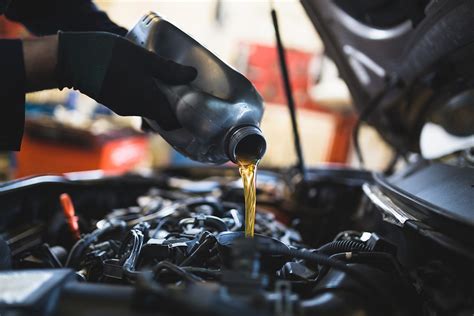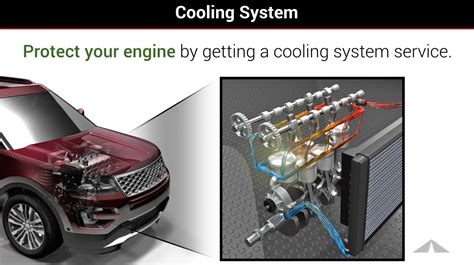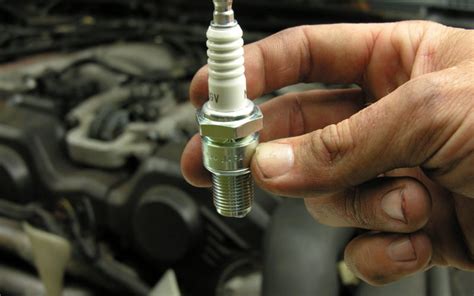Discover the importance of regular oil changes, cooling system maintenance, and spark plug replacements for optimal vehicle performance and longevity.Maintaining your LS3 engine is crucial for ensuring optimal performance and prolonging its lifespan. As a popular choice among car enthusiasts and performance-builders alike, the LS3’s reliability can be significantly enhanced with a few simple maintenance practices. From regular oil changes that keep the engine lubricated and running smoothly to proper cooling system maintenance that prevents overheating during high-stress drives, taking care of your engine should be a top priority. Additionally, routine spark plug replacement not only promotes fuel efficiency but also supports overall engine health. In this blog post, we’ll delve into essential maintenance tips for your LS3 engine, empowering you to get the most out of your performance vehicle while avoiding costly repairs. Let’s ensure your LS3 runs like a dream for years to come!
Regular Oil Changes

One of the most critical aspects of maintaining your LS3 engine is performing regular oil changes. The oil serves as the lifeblood of your engine, ensuring that all moving parts are adequately lubricated, reducing friction and wear. Over time, engine oil can become contaminated with dirt, debris, and combustion byproducts, making it essential to replace it regularly.
It is recommended to change the oil every 3,000 to 5,000 miles, although you should refer to your owner’s manual for specific guidelines. Regular oil changes not only keep your engine running smoothly but also help in improving fuel efficiency. Here’s a quick checklist for your oil change:
| Task | Frequency |
|---|---|
| Check oil level | Monthly |
| Change oil filter | With every oil change |
| Change engine oil | 3,000 – 5,000 miles |
When performing an oil change, always use high-quality oil that meets the specifications for your LS3 engine. Additionally, consider the benefits of synthetic oil, which can offer better performance in extremes of temperature and improved engine protection. By prioritizing regular oil changes, you can significantly extend the lifespan of your engine and keep it performing at its best for years to come.
Proper Cooling System Maintenance

Keeping your vehicle’s cooling system in check is vital for the performance and longevity of the LS3 engine. The cooling system is responsible for regulating engine temperature, preventing overheating, and ensuring optimal performance. Here are some essential maintenance tips to help extend the lifespan of your engine:
- Inspect Coolant Levels: Regularly check the coolant levels in your reservoir. Low coolant can lead to engine overheating and potential damage over time.
- Flush Your Cooling System: It’s important to flush the cooling system every 30,000 miles or as recommended by your vehicle’s manufacturer. This helps remove any sediment or rust buildup that can hinder performance.
- Check for Leaks: Regularly examine hoses, clamps, and the radiator for any signs of leaks or wear. A small leak can lead to significant cooling issues if ignored.
Additionally, be mindful of the condition of your radiator. A clogged or damaged radiator can significantly impair the cooling capacity, leading to overheating. Clean the radiator exterior and ensure that airflow is not obstructed.
Another crucial aspect is to monitor the thermostat. A malfunctioning thermostat can prevent the engine from reaching the correct operating temperature, causing inefficiencies. Replacing a faulty thermostat is a simple yet effective way to maintain optimal engine cooling.
By following these maintenance tips and regularly monitoring the cooling system, you can ensure that your LS3 engine remains in top shape, extending its service life and enhancing performance.
Routine Spark Plug Replacement

One of the most critical aspects of maintaining your LS3 engine is the routine spark plug replacement. Spark plugs are essential for igniting the air-fuel mixture in the combustion chamber. Over time, they can wear out, affecting engine performance, fuel efficiency, and emissions. Changing your spark plugs as part of regular maintenance can significantly extend the lifespan of your engine.
Here are some signs that it might be time to replace your spark plugs:
- Decreased fuel efficiency
- Rough idling or engine misfires
- Difficulty starting the engine
- Increased emissions
Typically, it’s recommended to replace spark plugs every 30,000 to 100,000 miles, depending on the type of spark plugs used. Always consult your vehicle’s manual for specific guidelines and use high-quality spark plugs designed for your LS3 engine to ensure optimal performance.
Frequently Asked Questions

What is the Ls3 engine?
The Ls3 engine is a 6.2-liter V8 engine produced by General Motors, known for its performance and efficiency, commonly used in various Chevrolet models.
Why is regular maintenance important for the Ls3 engine?
Regular maintenance helps ensure the engine operates efficiently, prevents unexpected breakdowns, extends the lifespan of the engine, and maintains optimal performance.
What are some oil change recommendations for the Ls3 engine?
It is recommended to change the oil every 5,000 to 7,500 miles, using high-quality synthetic oil and the appropriate filter for the Ls3 engine.
How can I improve cooling efficiency in my Ls3 engine?
Maintaining proper coolant levels, regularly checking the radiator, and using a high-quality coolant can help improve the cooling efficiency of the Ls3 engine.
What role do spark plugs play in Ls3 engine maintenance?
Spark plugs are crucial for igniting the air-fuel mixture within the cylinders, and they should be inspected and replaced as needed, usually every 60,000 miles.
How often should the air filter be changed in an Ls3 engine?
The air filter should generally be inspected every 15,000 to 30,000 miles and changed if it appears dirty or clogged to ensure optimal air intake.
What are some signs that my Ls3 engine needs maintenance?
Signs include unusual noises, decreased fuel efficiency, warning lights on the dashboard, rough idling, or a decrease in overall performance.